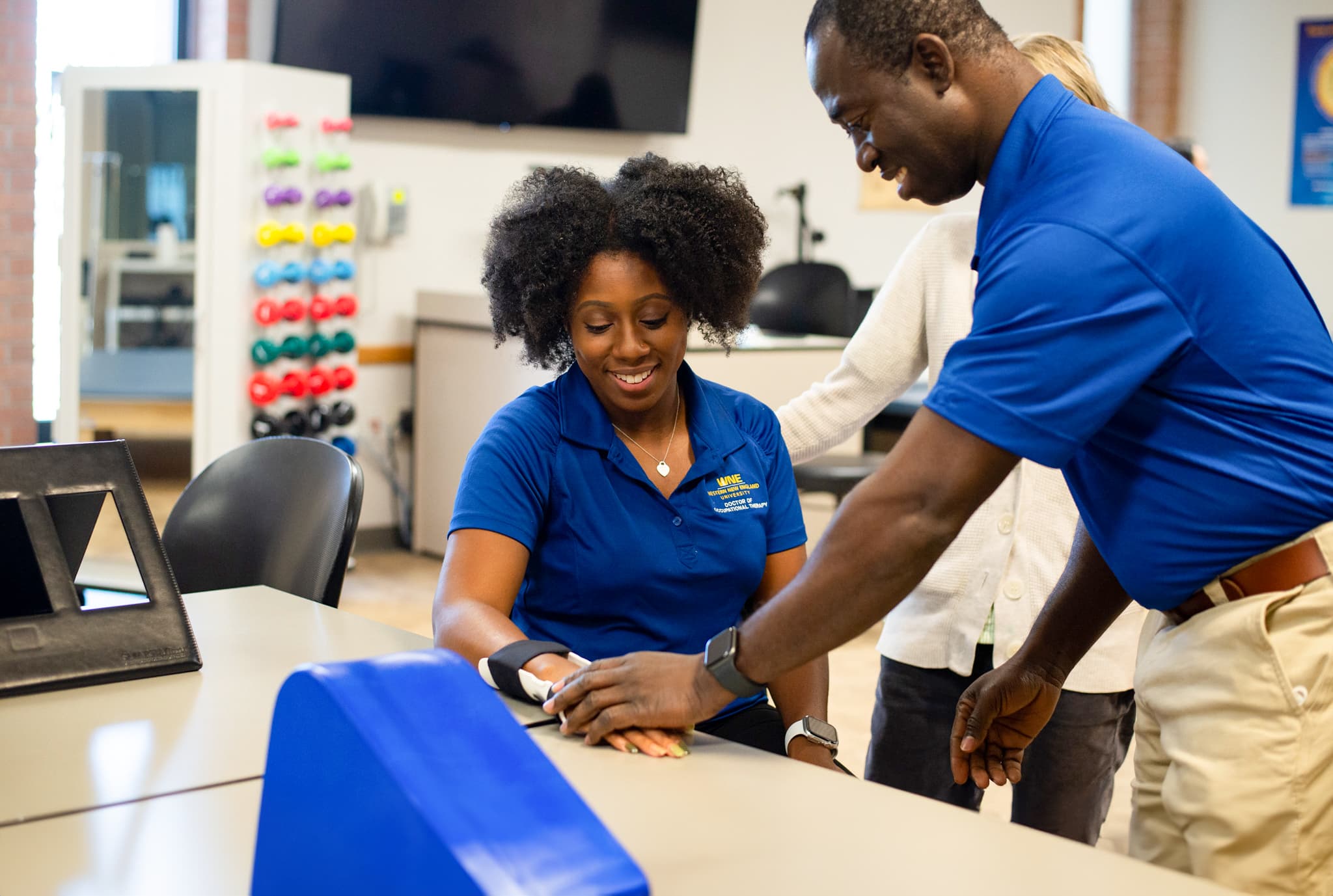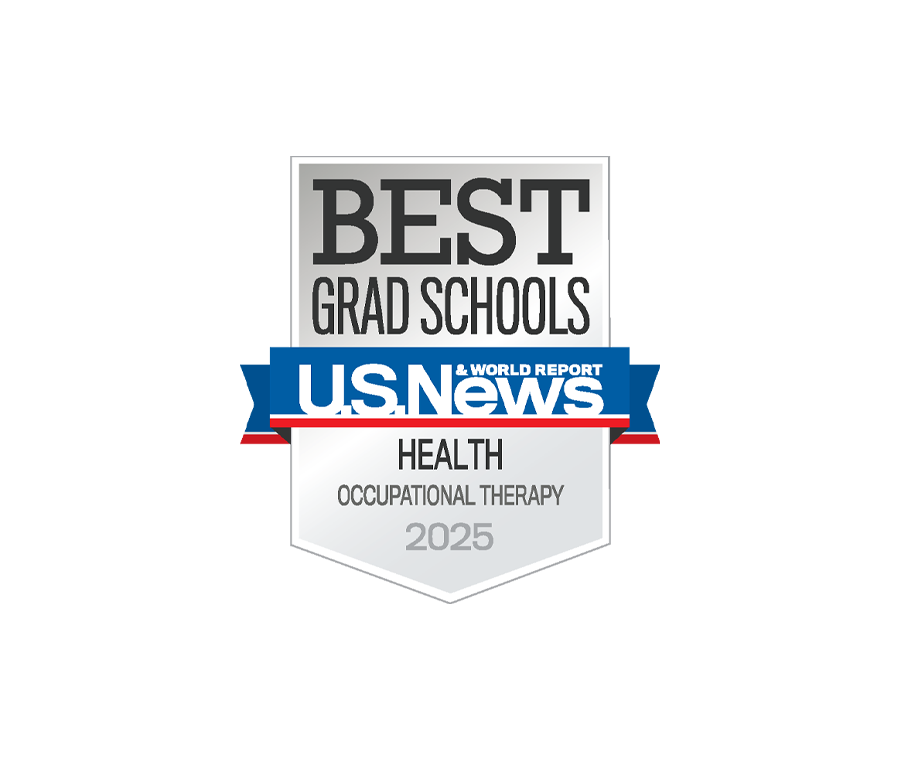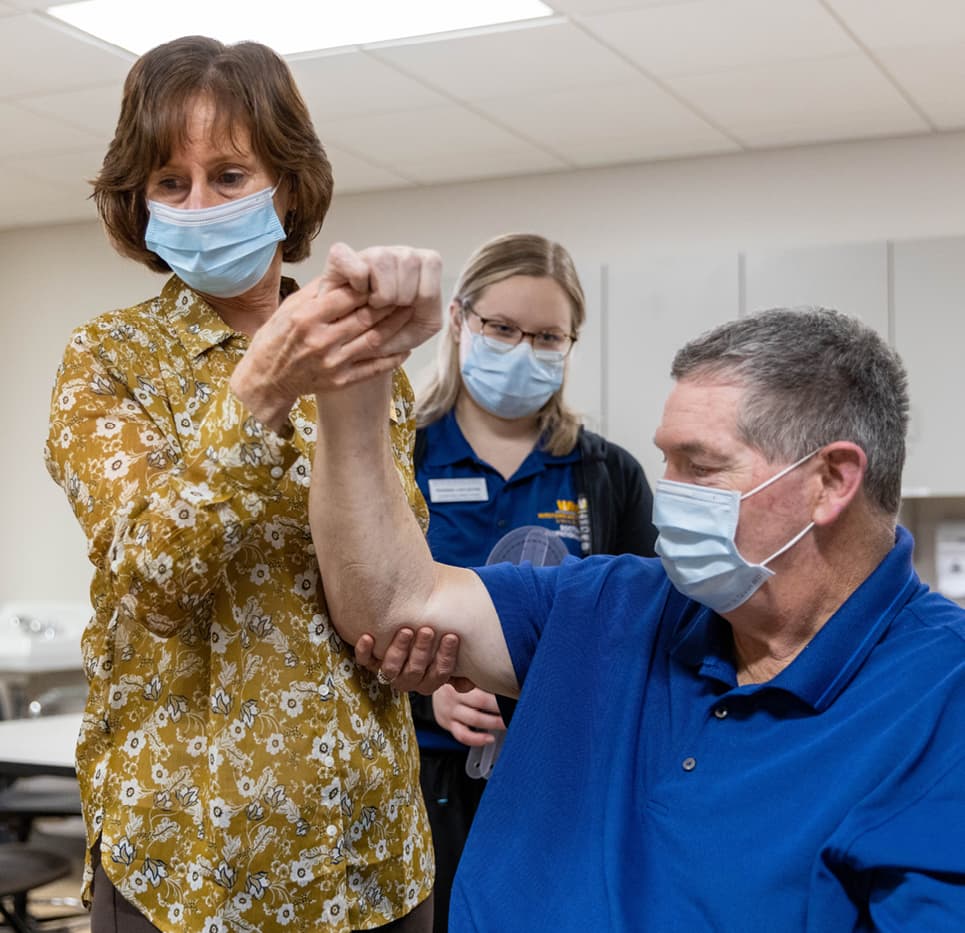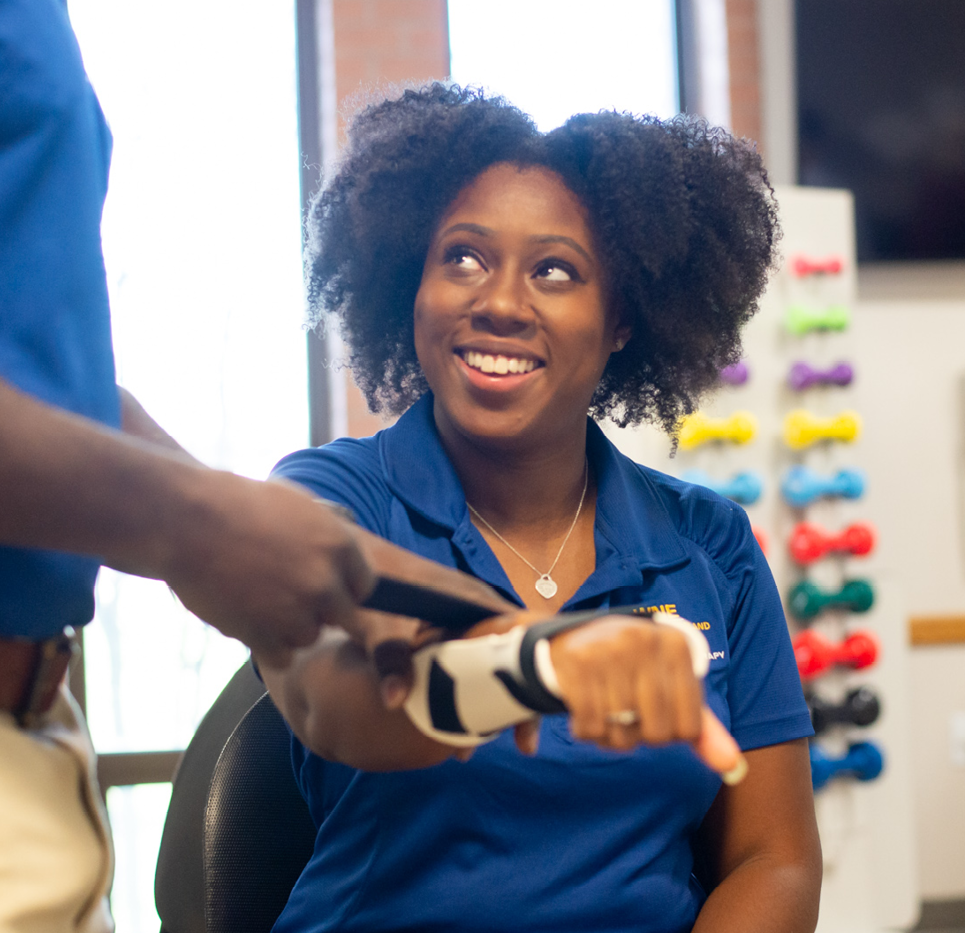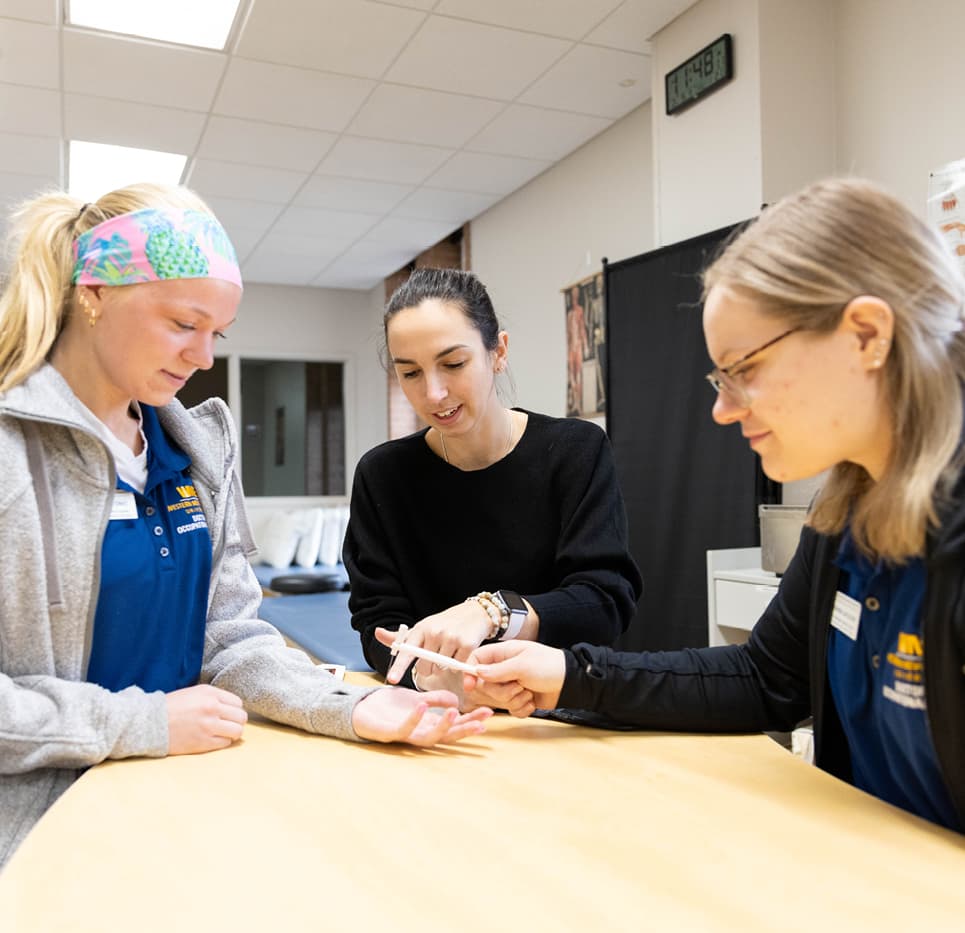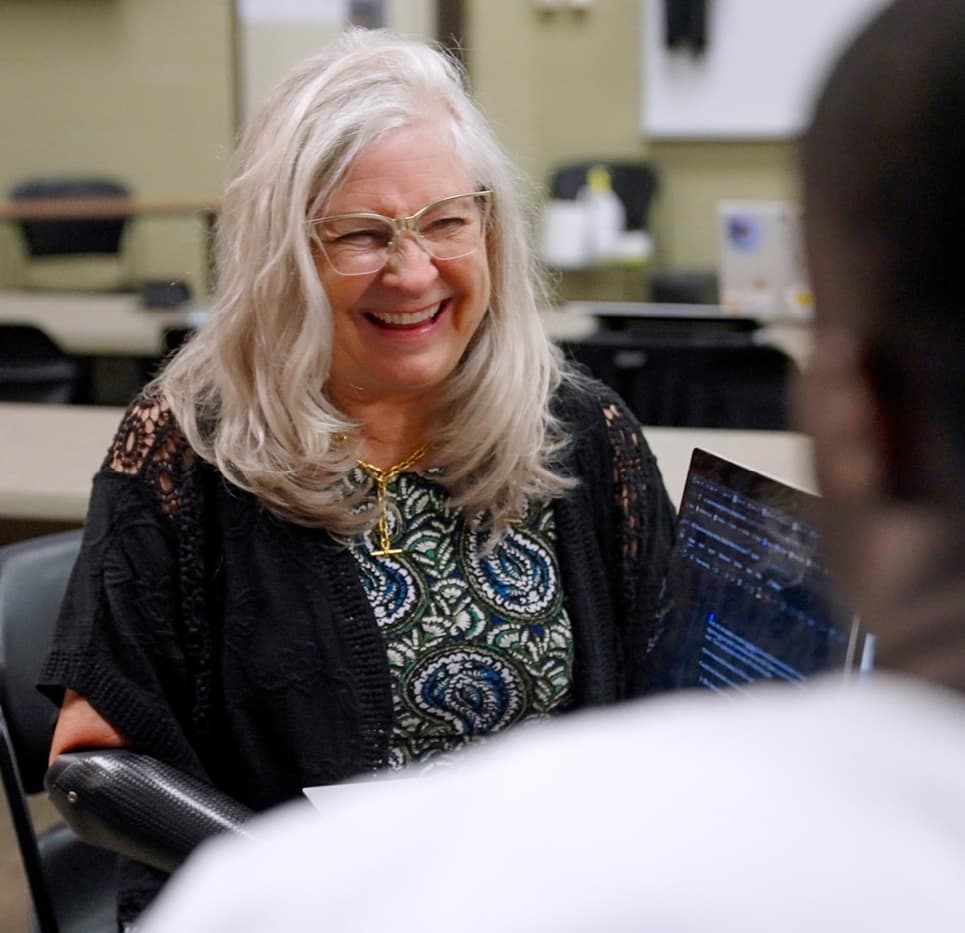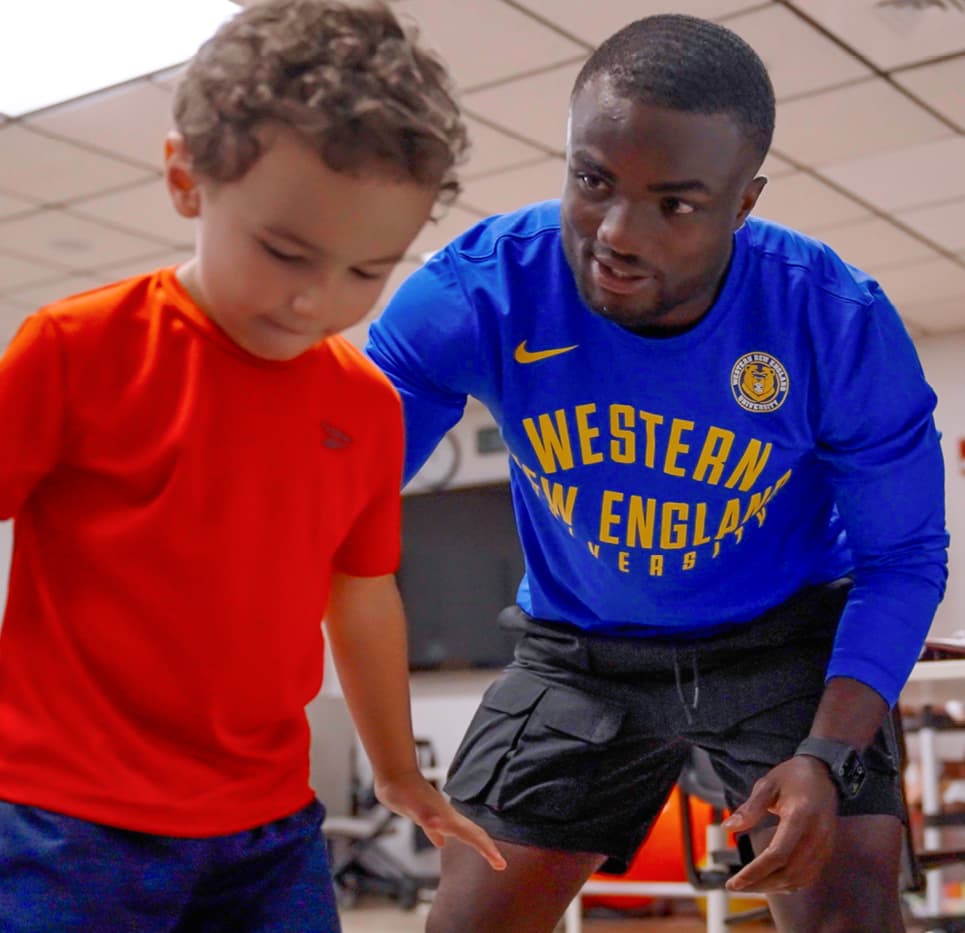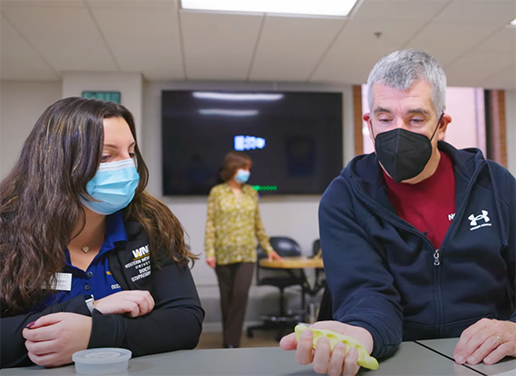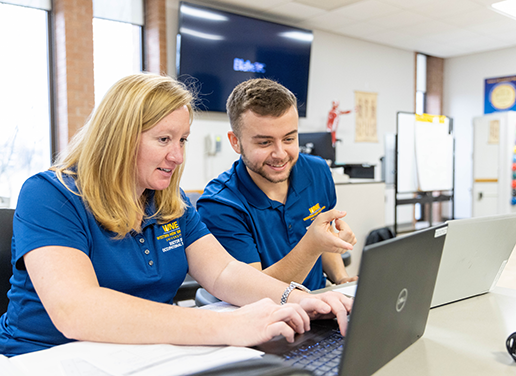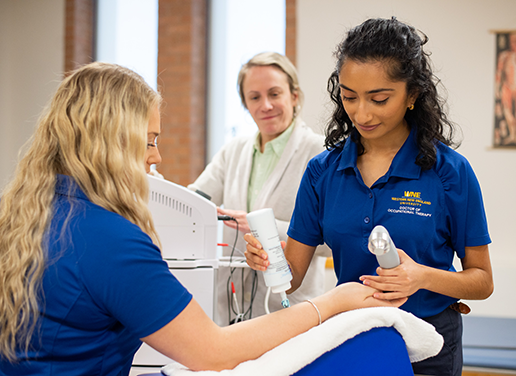Transforming Health and Well-being
We are excited to expand our OTD program! Our Online Distance Pathway welcomed its first cohort in Fall 2024, and we are now introducing the OTD Extended Pathway for students seeking additional time and flexibility to complete their degree. We are currently accepting applications for Fall 2025—explore our web pages to learn more!
In our entry-level Doctor of Occupational Therapy programs, you'll become a practitioner-scholar and a transformative leader in the dynamic field of occupational therapy. Our programs prepare you to assist individuals and communities in performing daily activities, adapt environments for improved function, and offer client-centered support for active participation in life.
Choose your path to OTD! We offer three engaging programs designed to meet your schedule and needs: the campus-based OTD, an online OTD Distance Pathway, and an Extended Pathway. As one of the few OTD programs in the country with an eight-semester curriculum model, WNE will help you complete your degree faster and more affordably—in less than three years! Whether you're starting from high school or continuing from undergraduate education, you can choose the path that aligns with your educational journey.
Regardless of the OTD pathway you choose, as a graduate of our program, you will be well-positioned to:
- Impact diverse populations, including those with and without disabilities
- Contribute to community health advancements
- Shape the development of the role of occupational therapy on collaborative interprofessional teams
- Navigate evolving healthcare settings, including emerging areas like telehealth, technology and innovation, and community-based programming for all client populations


